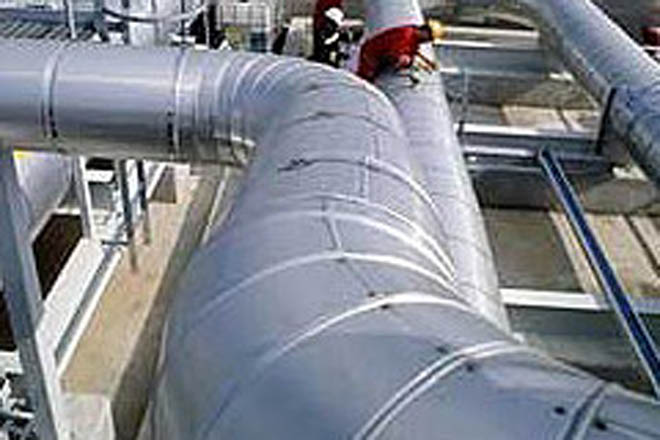Azerbaijan, Baku, December 19 / Trend , E.Ostapenko, A.Badalova /
The new pipeline envisaging gas supply from Turkmenistan to China can present threats to Turkmenistan's participation to the Western-supported projects such as Nabucco, said Alexandros Petersen, associate director of the Eurasia Energy Center at the Atlantic Council.
"But it is not yet a real threat. It's potential for the future, but not yet real, because at the moment the pipeline only taps into the Turkmen resources in the eastern part of the country," Petersen, who is on visit to Baku, told Trend on Dec. 19.
"The resources that Nabucco would potentially tap into (10 bln cubic meters) would be from the western part of Turkmenistan. So, it is not the same gas resources," said Petersen, who attends two-day symposium on 'Energy Exporters: Politics, Society, Economics' is held in Baku at the Azerbaijan Diplomatic Academy (ADA).
The Nabucco project worth 7.9 billion euro will deliver gas from the Caspian region and Middle East to the EU by 2014. Construction of the pipeline is expected to begin in 2011. Its maximum capacity will be 31 billion cubic meters per year. Nabucco shareholders are the Austrian OMV, Hungarian MOL, Bulgarian Bulgargaz, Romanian Transgaz, Turkish Botas and German RWE with 16.7 percent each.
Petersen said that it is part of Turkmen law at the moment that onshore natural gas resources can not be developed by foreign countries. What is interesting that Chinese CNPC is the first foreign company to get permission to develop the onshore resources, he said.
"It means that Chinese companies are quite influential in Turkmenistan not only economically and energy wise, but also politically. And if they could convince the Turkmen government to create a trans-Turkmen pipeline to access the western resources, as well, it would become a real threat to the Nabucco pipeline," Petersen said.
According to him, it is difficult to happen, but it is possible
It is difficult, first of all, because China will have to invest more money, Petersen said. They do have the resources to do this, they could if they wanted to, but they will have to make a very large commitment of funds again to Turkmen government and to building the infrastructure.
According to Petersen, it is also difficult technically.
"Turkmenistan-China pipeline is already the longest natural gas pipeline in the world. The more natural gas pipeline is the more difficult, it is to due to the capacity of the pipeline to exports gas. And if to increase the length by going across For Turkmenistan it would become even longer and more technically difficult to do that. It would enormously expensive and very difficult in the aspect of technology and engineering," Petersen said.
Pipeline from Turkmenistan to China envisages transportation of Turkmen gas through Uzbekistan and Kazakhstan. Initial deliveries via the pipeline will be 13 billion cubic meters of gas, but by the end of 2013 the volume will increase to 30 billion cubic meters per year. The length of the pipeline is about 7,000 kilometers, of which more than 180 kilometers passes through the territory of Turkmenistan, 530 kilometers - Uzbekistan, 1,300 kilometers - Kazakhstan and more than 4500 kilometers through the territory of China.
According to Petersen, the western companies are very slow in reacting and the Nabucco consortium is not at the moment in a place on counter in any ways the moves by CNPC.
Petersen believes that Turkmenistan's agreement to participate in Nabucco is a matter of what time there is a deal brought from the Nabucco consortium to Turkmen government.
"If there is an attractive offer brought to the table (about 10 bcm) next two years or so, that is the longest time. Then Ashgabat would agree to that, I think," Petersen said.
According to him, it will hit well with Turkmenistan foreign policy of diversifying its energy exports. But if the delay is longer than two years it seems that it would be more beneficial for Turkmenistan to build its relationship with China or with Iran, said Petersen.
Do you have any feedback? Contact our journalist at: [email protected]






